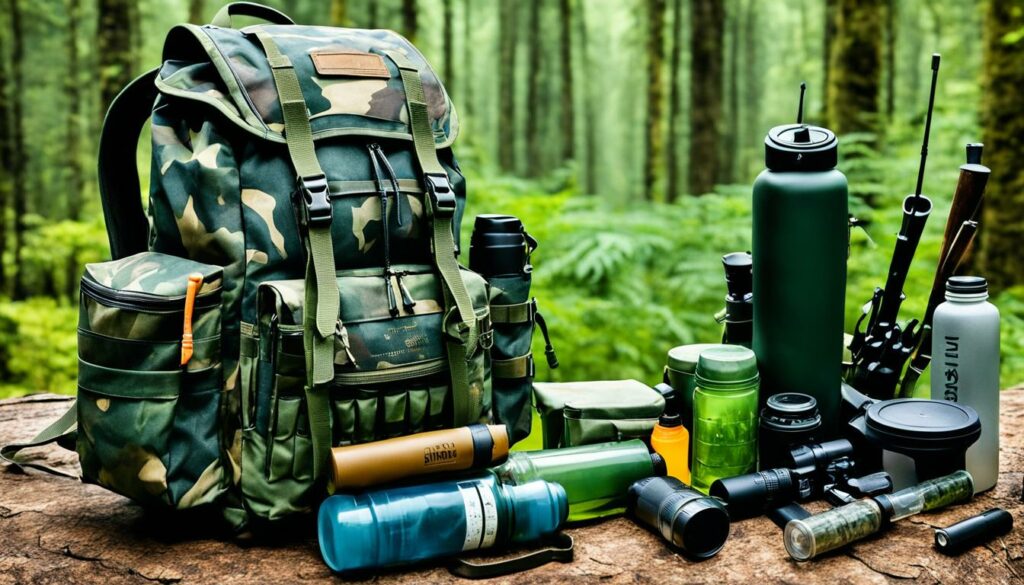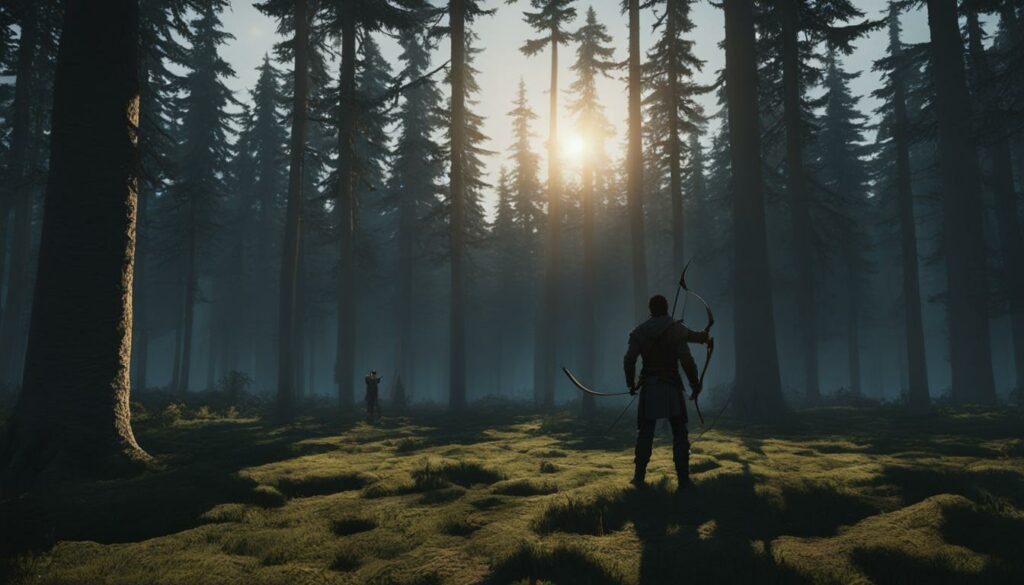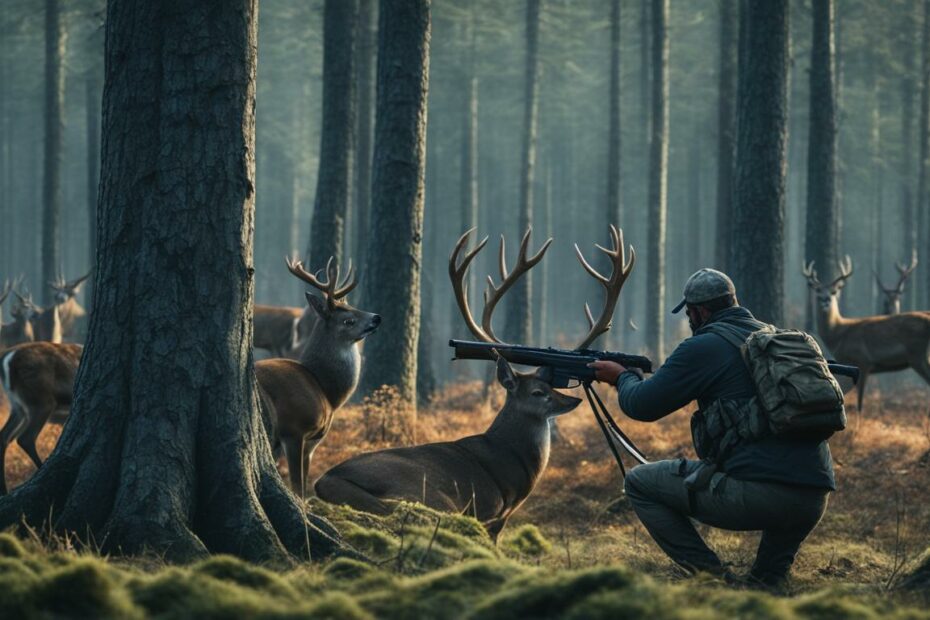Deer hunting is an exhilarating adventure that requires skill, patience, and knowledge. If you’re new to hunting and eager to embark on this thrilling journey, you’ve come to the right place.
In this comprehensive beginner’s guide, we’ll equip you with essential tips and techniques to help you confidently navigate the world of deer hunting.
Hunting with a Friend or Joining a Mentorship Program
One of the best ways to learn deer hunting is by hunting with a friend who has experience. They can teach you the ropes, provide valuable advice, and even lend you their hunting gear. If you don’t know anyone who hunts, consider joining a hunting mentorship program.
These programs pair beginners with experienced hunters who can provide one-on-one instruction and guidance. They also offer opportunities to attend hunts and events, helping you build connections and learn from seasoned hunters.
When hunting with a friend, you’ll learn from their experience and gain hands-on knowledge. They can show you proper hunting techniques, help you navigate the hunting area, and share their hunting strategies. Hunting with a friend also makes the experience more enjoyable and encourages camaraderie in the great outdoors.
If you cannot find a hunting companion, a mentorship program can provide the guidance and support you need.
These programs often have structured curriculums designed specifically for beginners, covering hunting safety, proper equipment usage, and regulations.
You’ll have the opportunity to learn from experienced hunters who can offer personalized advice based on their years of hunting experience.
Mentorship programs also create a network of like-minded individuals who share your passion for hunting. You can connect with other beginners, exchange tips and stories, and even form hunting partnerships.
These programs may also provide access to hunting leases, private hunting grounds, and exclusive hunting opportunities that you wouldn’t have access to otherwise.
When joining a mentorship program, make sure to research the program’s reputation and the qualifications of the mentors involved. Look for programs prioritizing safety, ethical hunting practices, and fostering a supportive learning environment.
You want to ensure that you’re learning from experienced and knowledgeable mentors who can guide you on your journey to becoming a skilled deer hunter.

| Key Benefits of Hunting with a Friend or Joining a Mentorship Program | |
|---|---|
| 1. Learning from experienced hunters | Access to valuable advice, techniques, and strategies |
| 2. Borrowing hunting gear | Save money by borrowing equipment from experienced hunters |
| 3. Building connections | Opportunities to meet and network with fellow hunters |
| 4. One-on-one instruction | Receive personalized guidance and support |
| 5. Exclusive hunting opportunities | Access to hunting leases and private grounds |
Practicing and Perfecting Your Skills
Practice is a crucial element in becoming a successful deer hunter. Whether you use a bow or a firearm, honing your shooting skills in various conditions and scenarios is essential. To ensure you’re well-prepared for your hunting expeditions, here are some essential tips:
1. Set up Targets
Creating a practice space in your backyard to set targets is a great way to simulate real hunting scenarios.
Utilize different angles and elevations to mimic various hunting situations, challenging yourself to make accurate shots. This will help develop your shooting skills and improve your accuracy overall.
2. Get Familiar with Your Equipment
Whether you’re using a bow or a firearm, familiarize yourself with your chosen weapon’s specific characteristics and mechanics.
Take the time to understand its capabilities and limitations, ensuring you can handle it confidently during your hunting adventures.
3. Practice Hunting Positions
If you plan to hunt from a tree stand or ground blind, practicing shooting from those positions is essential.
This will help you become comfortable and proficient in making accurate shots from elevated or concealed spots. Practice shooting from different angles, distances, and heights to simulate realistic hunting conditions.
4. Utilize Trail Cameras
Consider using trail cameras to monitor deer activity in your hunting area. These cameras allow you to observe deer behavior, patterns, and movement, providing valuable insights.

Benefits of Regular Practice
| Benefits | Explanation |
|---|---|
| Improved Accuracy | Regular practice sharpens your aim and helps you make accurate shots. |
| Increased Confidence | Practicing your shooting skills builds confidence, allowing you to stay calm and focused during hunts. |
| Enhanced Muscle Memory | Repetitive shooting exercises develop muscle memory, allowing you to shoot instinctively during hunting. |
| Adaptability | Practicing in different conditions and scenarios enhances your adaptability, ensuring you can handle various hunting situations effectively. |
Understanding Deer Behavior and Finding the Right Spot
To increase your chances of a successful hunt, it’s crucial to understand deer behavior and find the right hunting spot. Deer are creatures of habit, and knowing their habits can greatly improve your hunting success.
They typically bed in thick cover during the day, seeking protection from predators and the elements. In the early morning and late afternoon, they move out to feed.
To find the right hunting spot, look for signs of deer activity. Pay attention to tracks, trails, and droppings, as these can indicate areas frequented by deer.
Additionally, look for food sources such as food plots or agricultural fields, as deer are likely to feed in these locations.
Consider setting up your stand or ground blind between feeding and bedding locations. This way, you can intercept deer as they move between these areas.
It’s vital to position yourself downwind of where the deer will be to minimize the risk of them catching your scent. Pay attention to wind direction and choose a strategic location accordingly.
Conclusion
Deer hunting is a thrilling endeavor that beginners can enjoy. These essential tips will prepare you for your first deer hunting excursion.
Safety should always be your top priority when hunting, so remember to wear the appropriate gear and follow hunting safety guidelines. Additionally, practice your shooting skills regularly to improve accuracy and precision.
Understanding deer behavior is crucial for a successful hunt. Take the time to study their habits, such as feeding and bedding patterns, to determine the best hunting spots.
Look for signs of deer activity, like tracks and droppings, to identify potential locations. Consider joining a hunting mentorship program or hunting with a friend with experience, as this can accelerate your learning curve and provide valuable guidance.
Lastly, be patient and persistent in your pursuit. Deer hunting requires time, effort, and knowledge. Finding the right hunting spot and positioning yourself downwind of the deer will increase your chances of success.
